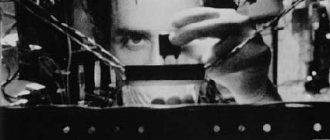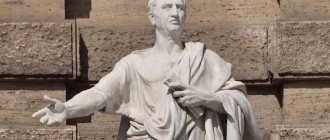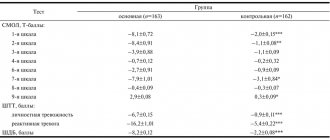This article is not intended for novice practitioners. It contains descriptions that may be misunderstood and misinterpreted by practitioners whose personal experiences are not yet the same as those described here.
Close self-observation is an internal practice of observing one’s own psycho-emotional processes. In other words, it is the practice of conscious action.
To perform this practice at any stage, you will need intelligence, developed thinking and a clear mind - these are the tools of self-observation.
How deeply and in detail we can observe the processes within our nature depends on the amount of our consciousness. The more aware we are, the more detailed and deeper we will be able to fix our attention on this or that internal process.
Deep consciousness is acquired by clearing away internal debris that interferes with the natural growth of consciousness. There are no other mechanisms for the growth of consciousness - it grows on its own as the internal space is freed from polluting debris. Internal garbage “eats” our consciousness, realizing it in emotions, desires, ideas and judgments.
Therefore, at the beginning of practice, there is not much consciousness in a person; his attention is superficial and tends to “stick” to external phenomena. Such attention is not capable of close self-observation - it is completely absorbed by life situations. A person experiences situations automatically, experiencing emotions and judgments. It is quite difficult at first to force your attention to focus not on external circumstances, but on your own internal processes. In other words, it is difficult to separate the one who experiences emotions and the one who observes these experiences.
For this reason, excellent techniques have been developed for the primary accumulation of consciousness, containing small “tricks” so that we can fool the subconscious mechanisms. Thanks to these techniques, despite the efforts of the Self, we can forcibly focus our attention on internal processes - observe them and disassemble them piece by piece.
It’s not so scary if in the situation itself we “forgot” and allowed our garbage to be realized in actions and emotions. It doesn't matter, the post-analysis is also very good. It can be said that post-analysis is a preparation for close observation. In addition, situations always repeat themselves, so we will still have the opportunity to show off our total self-control when we find ourselves in a similar situation.
Situations will be repeated again and again as long as we attract them to ourselves with our internal garbage. This is the law of Karma.
BEST TECHNIQUES
Since the best techniques have been described for a long time and many times, it makes no sense to repeat them in this article. Among modern authors, we can recommend the techniques described by Katie Byron, when we, through additional devices (notebook and pen), achieve the fact that we confront ourselves with the fact of our problems, thereby trampling on the will of the Self; these are slightly less technocratic (but no less effective) methods, told by Liz Burbo; these are indirect techniques for stopping the internal dialogue while awake (by transferring attention to walking, to sounds, to breathing, or when concentrating on various parts of the body, etc.) - with this we learn to control attention, and at the same time bring our mind to a state of not -descriptions of the world; techniques for disidentifying oneself and the one who is now in the situation (the Self is always against this, because its secret weapon is to be invisible, to be one monolith with us and through this to act within us on our own behalf); numerous psychotherapy techniques used by modern psychology to make life easier for the patient (a significant part of which overlaps with techniques used in the traditions of world religions), etc.
Also useful are such volitional techniques as techniques for forced (forceful) stopping of internal dialogue, techniques for stopping sleep (i.e. stopping chaotic internal dialogue during the REM sleep phase), techniques for concentrating undivided attention on an object (point), techniques for moving the perceiving consciousness beyond limits of the physical body. These techniques accustom the mind to submission to the will of man, and not to the arbitrariness of the Self.
These techniques are our support in mastering the practice of close observation.
One of the most effective techniques for cleansing, strengthening attention and awareness is the Inner Smile. She, like a hurricane, sweeps away all the garbage from our nature straight into the blue sky. But this technique is simple only at first glance. It is neither a preparatory technique nor a technique of close self-observation. This is another powerful technique of internal cleansing, setting the correct energy currents in the internal space and the correct mood in spiritual quests. It helps to split our consciousness into the one who participates in the situation and the one who observes this participation.
FANTASIES ABOUT WISDOM
We are enslaved to the Self. But it exists only in a limited area of our mind. If we monitor the mechanism through which certain emotions, feelings, ideas, thoughts come to us, we can separate the wheat from the chaff, that is, distinguish our fantasies from the perception of realities.
Sometimes at a certain stage of practice we can even feel that God is speaking to us! To calculate and see such manipulations of our Self, it is necessary to master close observation of internal processes. And if we can see that in such “conversations with God” we are influenced through Pride, then we will understand the source of these revelations. A critical attitude towards all kinds of “divine phenomena” is cultivated through continuous long-term practice of introspection.
Understanding of the “unity of the world”, or the understanding that God is “absolute nothing”, or that there is no need to achieve anything, since everything already exists, etc. - these are fantasies.
Of course, all these phrases are true. But our confidence that we understand them is wrong.
“You don’t need to achieve anything, everything is already there.” Of course, there is everything and even more. It is this “more” that we need to turn away from, cleanse ourselves, that is, renounce. This is practice - to discover what is unnecessary in yourself and free yourself from it. This cannot be done with empty talk or mental fantasy (not experienced) understanding.
Therefore, if you are reading this and at the same time are a witness to the “unity of the world,” then it is safe to say that you have achieved this perception only in your imagination, but in fact, you are controlled by Pride. Those people who have lived through such experiences will not read this note.
However, if you are not yet 30 years old, then you are not controlled by Pride, but by youthful enthusiasm and the desire to assert yourself in this world (in this case, on the basis of playing at an enlightened master). This is completely normal behavior for this age. This is not Pride, but a natural process of psychological maturation.
Fantasy is good, it makes the mind more flexible. But when it begins to control our consciousness, we begin to confuse fantasy with reality. Such fantasy turns into stupidity. And again, this does not apply to young people. At a young age, it is quite normal to indulge in fantasies, daydreams, do stupid things and consider your fantasies to be the only true perception of the world. This is a wonderful period! But for a more mature reader, it should be noted that in the absence of direct perception, a person is inclined to be seduced by imaginary images. This is one of the tricks of the Self - to create in the mind images of what we so desire.
Also, close observation is not achieved with “innate” talents. Sinners are born into this world (no matter how much we would like to consider ourselves an exception). They are born in order to sooner or later take the path of returning to the human state - and this requires many years of work and patience, and not at all innate talents. Innate talents can blind and give the illusion of some achievements. They do not teach people to work; rather, on the contrary, they corrupt them.
However, it is not the purpose of this article to convince anyone. This is God's task. And who, if not Him, knows when and how to do this. As a rule, this is done in large and small “bummers” in life. The “blessed” worldview (fantasy understanding of the “unity of the world”, the nature of “God”, etc.) begins to crumble and burst at the seams. Then the “rose-colored glasses” of fantasy perception are lost, and behind them a beautiful world of duality opens up, full of amazing discoveries “about good and evil, about fierce hatred and Holy Love.” And only after 10-20 years of work in the dual world can consciousness clear itself of duality enough to come closer and touch the perception of the Unity of God's Plan. Touching does not mean understanding. Even after such a touch, the thought of understanding Unity will be false - a product of the same Pride.
Let's return to the practice of close observation. It can be divided into several stages.
Application of the method
Introspection has no hard and fast rules regarding its application. There can be many ways. Methods of application:
- Fairy tale. An effective form of self-analysis is speaking your feelings and thoughts out loud. You can make up a story from them and tell it into a voice recorder.
- Writing a letter. You need to imagine a person who has caused a lot of inconvenience, insulted or humiliated, write a letter for him, which will contain only pleasant words. The text itself can be sent to this person or kept for yourself.
The main method of performing introspection is keeping a diary. You need to write down emotions, feelings, and thoughts that arise.
Self-observation is a method of studying mental manifestations, emotions, and feelings. It belongs to psychological practices, but is not recognized by all scientists. This is due to the main disadvantage of introspection - the inaccuracy of the information received.
FIRST STAGE
After the inevitable preparatory stage associated with the post-analysis of one’s emotions and feelings, the first stage of observing one’s own reactions directly during each situation follows.
The greater our awareness becomes, the deeper and more detailed we are able to observe manifestations in our inner space. These can be not only manifestations of the Self, but also other manifestations of our being. However, at the beginning of practice, the Self is so dominant that all other manifestations are insignificant against its background. The Self always “screams” inside us, demanding the implementation of its commands, while other “voices” sound quiet and unobtrusive. Over the years of practice, the “screams” of the Self become quieter, and against their background we begin to discern something else.
We must learn to “turn away” within ourselves from the cries of the Self. This makes the Self weaken, because it lives at the expense of our life force, which we direct to certain phenomena, focusing our attention on them. If we pay attention to the implementation of the commands of the Self, then we fill it with our vitality. More details about this mechanism are written in the article “On the vector of life efforts.” When we learn not to waste our lives on implementing the commands of the Self, we will put the Self on a starvation ration, and we will direct our lives towards bringing ourselves into the state of a homo sapiens, that is, we will follow the path of our realization.
How to carry out this practice? We must try to constantly keep part of our attention on our feelings of self. That is, attention should be divided - it should be enough both for the actions themselves in some situation, and for continuous (!) observation of one’s reactions at the same time. This way we can be aware of our actions.
Situations will try to absorb all our attention. Emotions will try to realize themselves in our inner space, they will try to flood our consciousness. But we must maintain at least part of our attention in the state of an “outside observer” - one who observes internal processes without participating in them. With years of training this will not be difficult. Of course, the state of being “aware” does not appear in a week or even a month. Even after years of practice, there will always be situations where the “attack” of the Self will be so great that we will lose the state of introspection for some time. Usually it looks like this: we observed ourselves, everything was fine, and then we suddenly discover that for some time now we have been completely captured by some event and have lost control. At the same time, we were somehow good, sad, aggressive, cheerful, but for a while we lost ourselves, our self-perception. Our whole “I” carried out some kind of program, but this program is not our “I”.
Cases like this happen from time to time. After all, tracking yourself is an essential part of the process of self-purification, and it lasts a lifetime.
SECOND PHASE
Close observation of yourself allows you to see incorrect (self) reactions - actions, words, thoughts, sensations, feelings, emotions. By viewing them with attention free from passions, we weaken their impact. This allows you not to waste consciousness, but to accumulate enough of it for the next stage.
The next stage of this practice is to discover the sources of passions. Perhaps this stage can no longer be attributed to the beginning of practice. The sources are always not external circumstances, but something that rests in the depths of our nature. Circumstances only provoke the source to emit all these “aromas” with which the life of every practitioner is full.
When observing our reactions and maintaining attention in the inner space is no longer difficult in most situations, we begin to deepen our attention along the manifested emotion to its source. This becomes possible at the time the source emits the emotion. Our attention will no longer be enough not only to be present in the situation, to observe reactions, but also to track down the source. We will see how emotion eats up our attention. But when enough of it is collected, we can slide along the emerging emotion straight to its source. It will become clear that when we observe the source, it loses its power and power over us.
In other words, by this process we dissolve our old trauma, which controlled our emotional sphere, deprived us of balance, and programmed our psyche. Each such source dissolves over the years of close observation of it - first we get closer and closer to it, and then we penetrate deeper and deeper into its core, layer by layer.
In this case, various states similar to déjà vu may appear, or visual “flashes” of unexpected memories may appear that correspond to key circumstances when we acquired and strengthened this source.
Dissolving some source day after day and year after year, one day we will stop observing its manifestations in our psychic field. We will think that we have recovered from this trauma. But no. There is a third stage of close observation.
What is self-observation?
The purpose of self-analysis is to get closer to different areas of our psyche that we don't even think about on a daily basis. When a person looks at his own psyche, he must take into account which emotions will prevail over him and why. For example, when feeling an extreme degree of anger towards a loved one, a person may think about where such a pronounced degree of this negative feeling came from: is it simply hypersensitivity or is something really hurting him?
During introspection, various psychological aspects can be analyzed, such as:
- feelings that torment us;
- decisions we have made or plan to make;
- our behavior and various factors that make us behave in this way and not in another way;
- our needs;
- relationships with other people - both with loved ones and with colleagues or casual acquaintances.
In general, the purpose of introspection is the need to look at yourself from the outside and carefully analyze your own psyche. The only question that remains is: “How can this be done?”
THIRD STAGE
The third stage concerns observing the field of fleeting thoughts. When the source (trauma) stops issuing commands (emotions), observing your thoughts will always reveal “traces” of this trauma. This means that the injury has entered the dormant stage.
What thoughts could these be?
For example, when observing the behavior of another person, we may notice with relief that not so long ago we ourselves could act this way (or experience such emotions). But now everything is different, we are out of the game.
Out of the game? Where did this idea come from? This thought is the “trace” of the source. The trauma is so weak that it can no longer manifest itself and control our emotional sphere, but it is still enough to pollute our thoughts.
Why are such “dormant” sources dangerous? From them can grow the “pride of the righteous” - one who does not experience uncontrolled emotions; who knows and appreciates his purity; who compares himself with other people and sees his own radiance; who stands proudly at the pinnacle of the achievements of his practice; who does not realize that “own practice” is just another trap; who admires himself in his deceived eyes.
Further spiritual cleansing is associated with acceptance of God. It finally heals such “scars”. This is not an initial practice - it is abstract, full of the power of the Spirit and the joy of the unity of the External and Internal.
Acceptance of God requires detachment from “one’s practice,” renunciation of any esoteric and religious dogmas, and complete rejection of generally accepted patterns of “enlightened” or “spiritualized” behavior. It requires forgetting all previously accumulated “spiritual” knowledge. Acceptance of God is the core of Spiritual practice. The Path consists of accepting God. We can say that all our self-purification is preparing ourselves for this Path. The final purification no longer occurs through human forces. It becomes clear that before we could hardly cope on our own. We only thought so.
Thus, at the first stage of the Spiritual Path, the triumph of Humility is comprehended - the discovery of the highest divine Weakness of man. This is wonderful.
Systematic introspection
Between 1901 and 1905 in Würzburg, under the leadership of Külpe, what became known as systematic introspection developed. Külpe, who like Titchener was influenced by Mach's positivism, moved from Leipzig to Würzburg with the conviction that experimental psychology should also study thinking. The new experimental psychology could deal with sensations, perceptions and reactions, and Ebbinghaus added memory to this list in 1885. Wundt said that thought cannot be studied experimentally. The positivist Külpe, however, was confident that all he had to do was find subjects willing to think under controlled conditions and then obtain from them an introductory report of their thinking processes.
This was followed by a brilliant series of works on associations (1901), written by Külpe's students: Mayer and Orth on judgment (1901), Marbe on feeling (1903), Watt on thinking (1905), Ach on action and thinking (1905). Each of these works argued that so-called classical introspection does not meet any of the above problems. Mayer and Orth described the chain of associated images in the process of thinking, but did not find any indication in introspection of how thinking is directed towards its goal. Marbe noted that although judgments are easily expressed in terms of images, introspection gives no indication of how or why they are formed. In Orth's research, emotions "resisted" introspective analysis, so he had to coin the controversial term "conscious attitude" to describe emotional life.
In his subjects, feelings, of course, did not appear in the form of sensations or images. Watt and Ach independently came to consistent conclusions. To make introspection more effective, Watt invented the technique of fragmentation: he divided psychological events into successive periods and examined each of them separately, thereby achieving a reduction in the amount of memory and inferences included in the introspective report. But the nature of thought remained elusive to him until he realized that the goal orientation of thought is given by a task or instruction (he called it a task that the subject accepted before the start of the thought process). Ach developed the concept of deterministic tendency as a guiding unconscious principle that directs conscious processes along a predetermined path to solving a problem. He also developed a partitioning procedure with chronoscopic control and formulated the method - systematic experimental introspection. Both the defining, essentially unconscious tendency and the conscious processes directed by it turned out to be impossible for Akha’s subjects in terms of classical introspection, i.e. in the language of sensations and images. For these vague, elusive contents of consciousness, Ach had to introduce the concept of consciousness, and his subjects learned to describe their consciousness in terms of unobservable experiences of consciousness.
Representatives of the Würzburg school believed that they had discovered a new type of psychic principle using the method of introspection, but the concept of consciousness did not achieve the status of being recognized in terms of sensation and image. Instead, they talked about the discovery of ugly thought by the Würzburg school, and many blamed it for this: the discovery is purely negative, even though thoughts are not images, but what is it? Titchener, however, believed that he knew the answer to this question. According to Titchener, the thoughts that Wurzburger speaks of are partly conscious relations, which are vague, fleeting patterns of sensations and images, partly meanings and judgments, which should be excluded from psychology because the task of studying them is not adequate to description.
INTERMEDIATE CONCLUSIONS
So, human attention is a magical instrument. If we focus it on money, then we will gain money. If we focus our attention on our husband, we will find a husband. If we focus our attention on ourselves, we will find ourselves.
However, the practice of close observation requires many years of training and renunciation of other guidelines in life - only by focusing on your own manifestations day after day can you master close observation.
Would you say that you work a lot and have little time? It's not about being busy, it's about how much you understand the meaning of your life. If you have already reached the understanding of life as preparation for death, then at work (with your bosses, with subordinates), and on the way to work (in the subway, tram), and at a family picnic (in the forest or at the sea) - everywhere You will have both a field for practice and time for it.
You might say, “You can’t focus on yourself like that! If you focus on yourself like that, you won’t be able to start a family, give birth to children, raise and educate them.” Of course, you don't have to focus on yourself. You have to do what you think is necessary. And always think with your own head, and not with the head of your advisors. This text is no exception. It describes the experience of a person on a journey. Is this experience right for you? Does it indicate any new opportunities for you? It's up to you to decide. Therefore, if you think that focusing on your reactions will ruin your plans, then you should not follow the advice in this article.
But to be honest, family life and raising children are not a departure from practice, but on the contrary, this is a huge field for the practice of self-observation in a very intensive (sometimes catastrophically intense) mode.
Petr Osipov: introspection
One of the founders of the largest and most famous business community in Russia and the CIS, “Business Youth,” Petr Osipov, recently released a new book. It’s called “Self-observation”. This is not just another information product on the market based on made-up stories and inflated expectations. The book is a whole collection of various techniques and skills, a whole range of psychological tools. The author himself introduced them into his business and made sure that each one worked.
Peter Osipov’s diary “Self-Observation” will be of interest to both established and successful entrepreneurs and businessmen just beginning their journey, who simply need to have a large supply of nerves and mental energy to go through the difficult path of establishing their company. He talks about introspection precisely from the point of view of a business manager, so here you can find a large number of articles in which various situations, people, their businesses are literally analyzed bit by bit, and philosophical issues of self-development and individual growth are discussed. Osipov’s “self-observation” resembles a diary, the same one that psychologists recommend keeping for those who want to apply the method of introspection in practice.
PRACTICE OF GOD RECEIVING
First of all, we must admit to ourselves that the Universe was created once. There is also scientific evidence for this theory. We also need to admit to ourselves that the Universe was not created by man. In some esoteric circles it is believed that man is God. However, based on common sense, one can guess that there is still a difference. Man is a grain of sand on the surface of the Earth, and the Earth is a grain of sand in our galaxy, and our galaxy is a grain of sand in the Universe. Therefore, we are grains of sand to the third power in comparison with Creation. And only our Pride the size of the Universe tells us otherwise. For this reason, sometimes it seems to us that our “I” is God.
To avoid such self-perceptions, all genuine religions say that one must begin the practice by cleansing oneself from Pride. Pride is the root of many branches: greed, irritation, importance, greed, power, lust, pity, talkativeness, insight, abstruseness, fanatical admiration, etc.
To some level, cleansing from Pride is achieved through close observation (even reading this harmless text for some can become a reason to observe an “amazing” kaleidoscope of emotions in oneself). However, complete purification cannot be done for “yourself” or “your knowledge” or “your enlightenment” - this is self-deception. Such cleansing will not be complete. It will be complete if it is done for the sake of entrusting oneself to God. This is the practice of receiving God. Difficult practice. Learning it is like learning to breathe in an oxygen-free atmosphere or how to hold onto the air with your hands when there is an abyss under your feet.
If your experience says that accepting God is superfluous in the practice of a “real warrior,” then this note is not for you. But note that for a conscious person, lack of understanding of something means precisely lack of understanding. However, if we are controlled by the Self, then often the lack of understanding of some issue in a topic in which we consider ourselves “experts” causes us to be in denial or even irritated. We are sure that if we do not understand something, then it cannot be correct. Because if this were true, then we would certainly understand it. Where do such sensations come from in us? Of course, the Self gives them to us. It can be quite difficult to admit to ourselves that our current “I” is not the crown of the top of the world. It is even more difficult to discover that our “I” is our delusion. The practice of self-observation points precisely to this circumstance.
If it seems to you that accepting God is associated with positive emotions and an elevated mood, keep in mind that there are no elevated moods in accepting God. This practice is not of exaltation, but of Humility.
“Learning to hold on to air” is a long-term practice. What distinguishes it from the previous stage of exhausting personal traumas is the presence of a deep sacred joy in the close presence of God. Somewhere nearby, somewhere very close, as if behind a translucent veil, hiding us from His direct gaze - loving, nurturing and demanding.
This is an amazing practice.
FOURTH STAGE
The technique of close observation will remain relevant in the practice of receiving God. After all, after the initial cleansing of self-reactions with which a person is initially overwhelmed, seduction occurs by the natural manifestations of our “new” capabilities and “new” worldview. Previously, all this was inaccessible due to the shackles of the Self, but now it captures and bewitches us with its amazing beauty, harmony and power. We, who do not know ourselves, inevitably begin to confuse our own capabilities and the manifestations of God. Through this, the process of acceptance of God can degenerate into sophisticated spiritual narcissism.
Thus, having left the level of stupidity, we are faced with charming illusions. And only intelligence, common sense, sober introspection and the practice of close observation will stop the seduction of consciousness by false grace - the magic of human natural manifestations.










